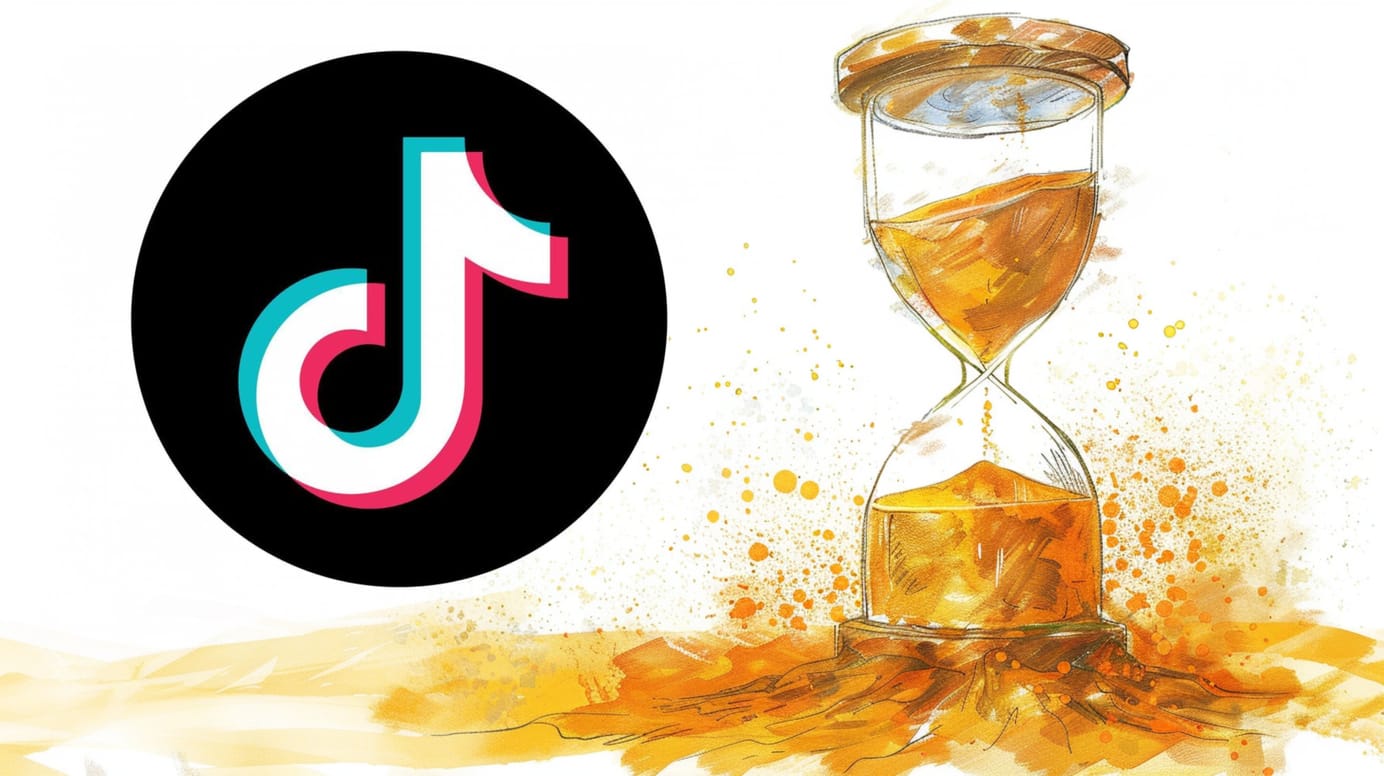
General Election 2019: the news media failed profoundly — but not in the way you think
Reuters Institute research shows that most of what we believe about the general public and politics news is wrong — and that we are profoundly failing to engage them.
We’ve talked more about consumption of news media over the last few elections than any before them. From the accusations of foreign interference in key votes back in 2016, to today’s wariness of the roles of hyperpartisan sites, the media commentary at bubble has had plenty to chew on. And we have been taking about the wrong things.
Today, the Reuters Institute is releasing research into news media consumption around the 2019 UK general election, and I’ve been reading my way through an advance copy. It is, to be frank, a bit of a shocker. This research is sitting firmly behind the wheel of a bulldozer, destroying the edifice of media discussion about election coverage. Based on this work, we’re all talking about secondary issues, and missing a huge elephant in the room.
Take, for example, the idea that the BBC has a terrible election, and were biased towards the Conservatives. This is what the report has to say:
Criticism of the BBC is often expressed most strongly on social media. Indeed, people who say they use social media for news are around twice as likely as non-users (19% compared to 11%) to think that the BBC did a poor job of covering the election (Fig. 26) – with much smaller gaps if we cut the data by demographic variables like age and gender. This is not to say that social media is in any way causing people to acquire an unfavourable opinion (we don’t know), but it highlights how conversations on social networks like Twitter can provide a misleading view of public opinion.
In fact, the public, as a whole, think that Auntie did a good job, compared to other outlets:
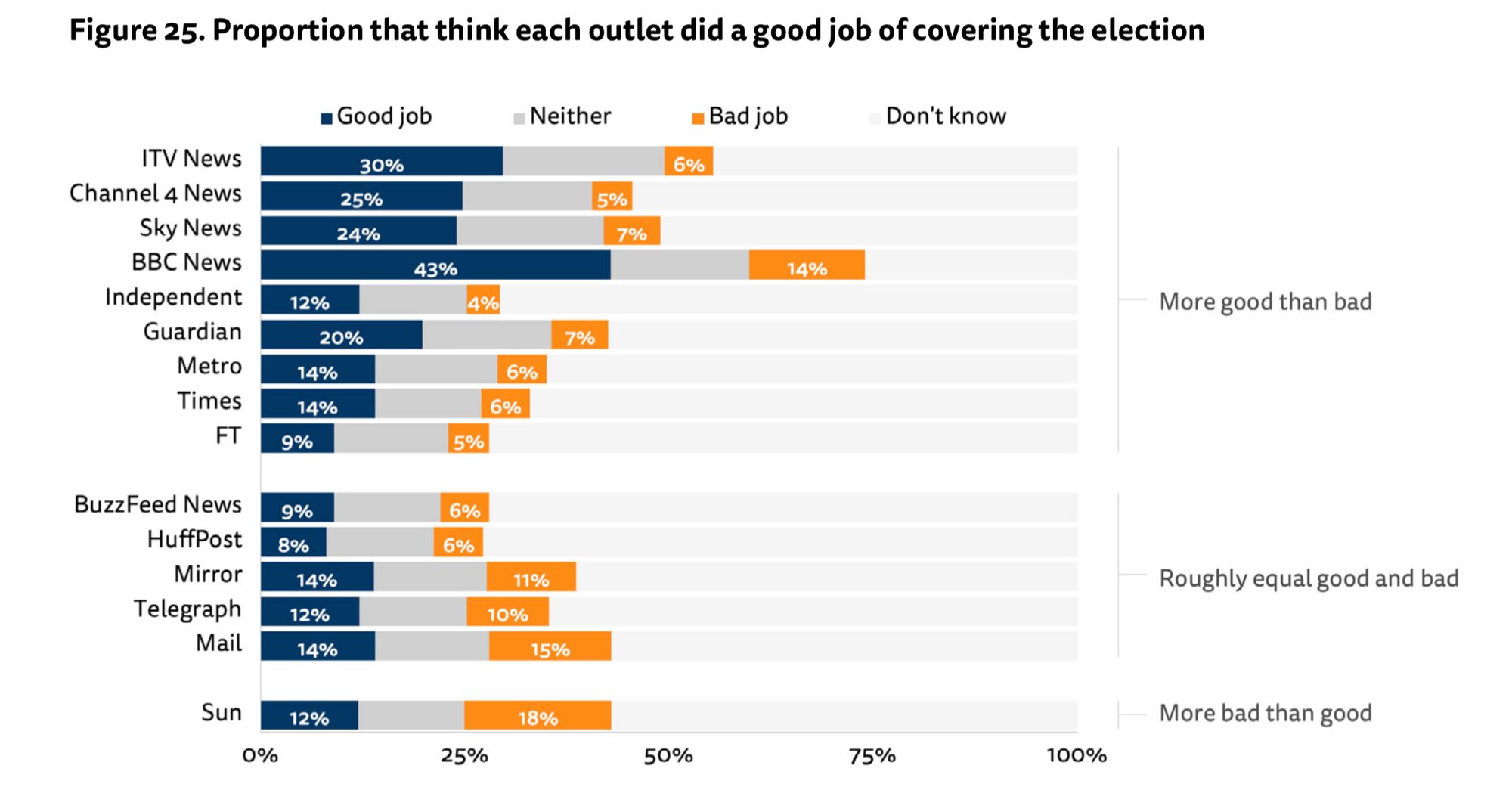
The narrative that the BBC was biased in favour of the Tories has been difficult to sustain in the face of some serious threats against the BBC from the new government — although I have seem some people give it a solid try — and it seems clear that the belief splits along party lines.
Right-wing media moguls or impartial news?
Indeed, the idea that reporting on UK politics is dominated by right-wing outlets is an oft-expressed and closely held belief for many. If you're one of them, this will come as a surprise:
Much of this news consumption came from websites committed to impartial coverage and those that made no party endorsement (33%). Just under one third (31%) came from outlets that endorsed the Conservative Party and one in eight (12%) from outlets that endorsed the Labour Party.
Impartial sites are still winning out, even if the right-wing press is significantly more numerous than the left wing:
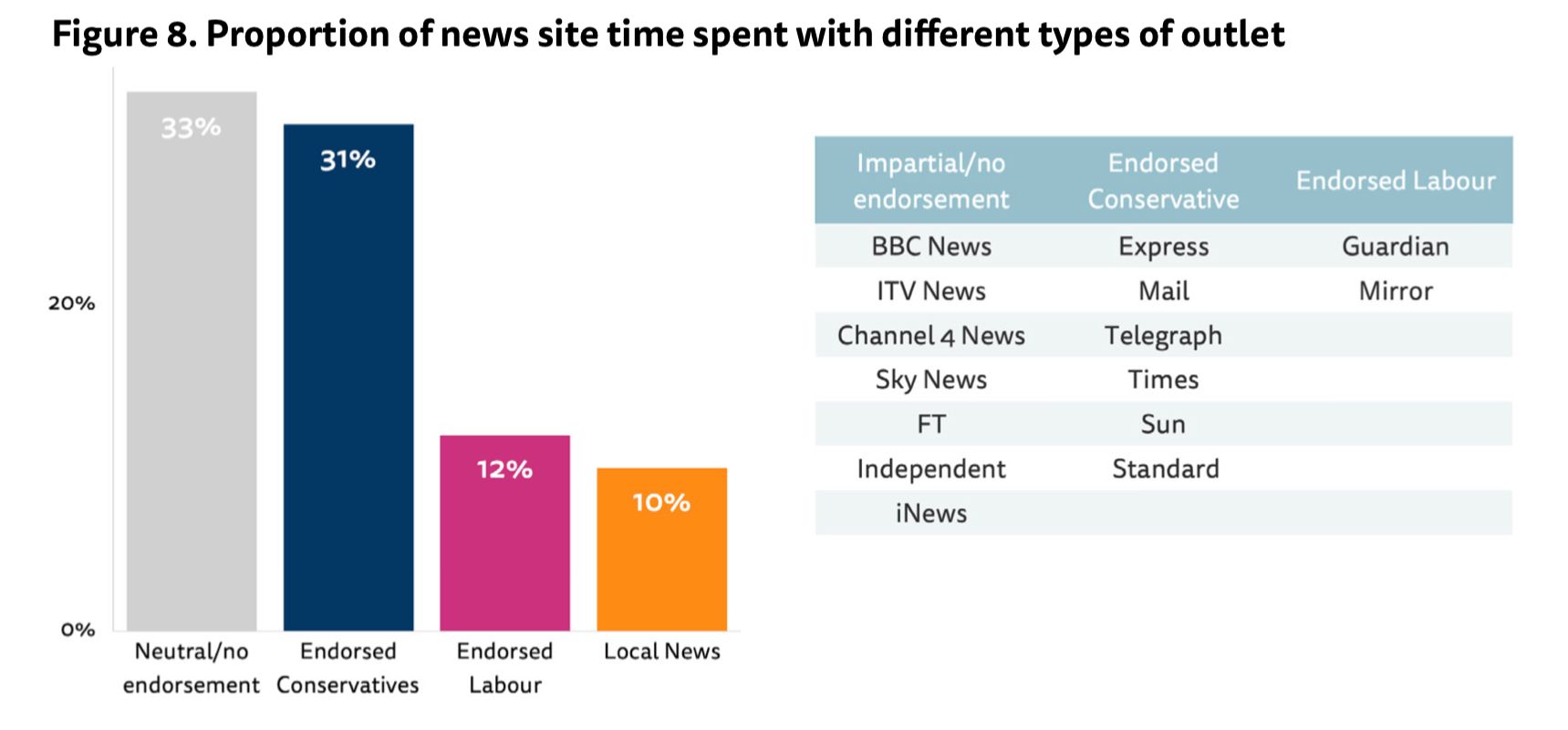
Indeed, generally, the power of the right-wing press appears to be in decline:
There is historic resentment on the left about the relentless personal attacks by right-wing titles which they believe make it harder for a Labour leader to ever win an election. But it is also clear from our data that the right-wing media – with the exception of the Daily Mail – have lost influence and reach with the move to online and continue to do so with each passing election. Indeed, there are more left-leaning options online and some of these, like the Guardian, have gained much greater reach and influence than they ever had in print.
Hyper-partisan irrelevance?
That attention isn’t shifting to the niche media sites, either. Reading the hyper-partisan outlets is still very much a specialist activity on both left and right:
Alternative brands such as the Canary, Novara Media on the left and Breitbart on the right – along with foreign sites like Russia Today and Sputnik – played a relatively small part with just 1% share of the time spent with news, about 0.02% of the time people spent online during the election.
We live in a winner-takes-all market for news attention, it seems, with two brands dominating time spent on news sites (what there is of it, but we'll come back to that later….
We show that online news during the campaign was a winner-takes-most market, with just two providers, the BBC News and the MailOnline, accounting for nearly half (48%) the time spent with news, and the top five (including the Guardian, the Sun, and the Mirror) accounting for two-thirds (66%) of the time spent.
However, as the report notes, those figures for the BBC are solely for the news section, while for Mail Online they are for the whole of the site. The BBC’s dominance of news consumption time is likely much higher than reflected here.
How about social media?
So, what about social media — and social media targeted advertising?
Despite hundreds of thousands of pounds spent on social media advertising by political parties, only around one in seven (14%) of our survey respondents said they had seen one of these political ads online. This compared with almost two-thirds (63%) who had seen a political leaflet and one in ten who had received a visit from a political representative at home (9%).
Of course, this might be more significant than it appears at first glance. The advantage of social media targeting is that you can reach the voters who matter most - the floating voter in marginal seats. The ugly truth is that, for many of us, our vote is all but irrelevant much of the time as we live in safe seats. (Although, this election should challenge the idea that any seat is a safe one.)
However, the highly political Facebook pages don’t seem to be a huge factor:
We also monitored traffic to over one hundred pro- and anti-Brexit pages on Facebook, but these were visited by less than 2% in total. Satire sites were used by around 3% of our sample.
Interestingly, search seems to be more used for news than social:
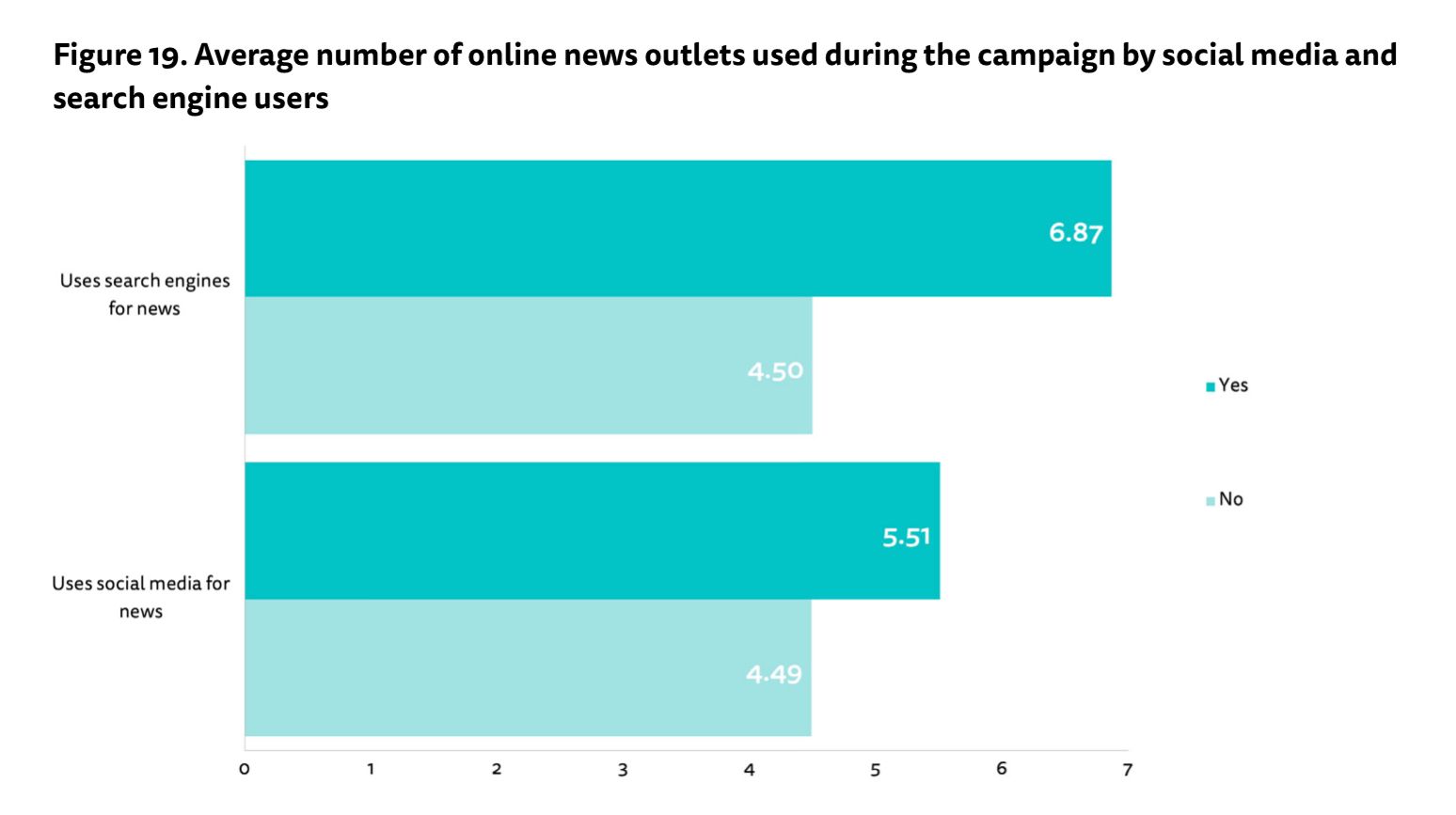
So, what should we be worried about?
The profound failure of news journalism
Well, this:
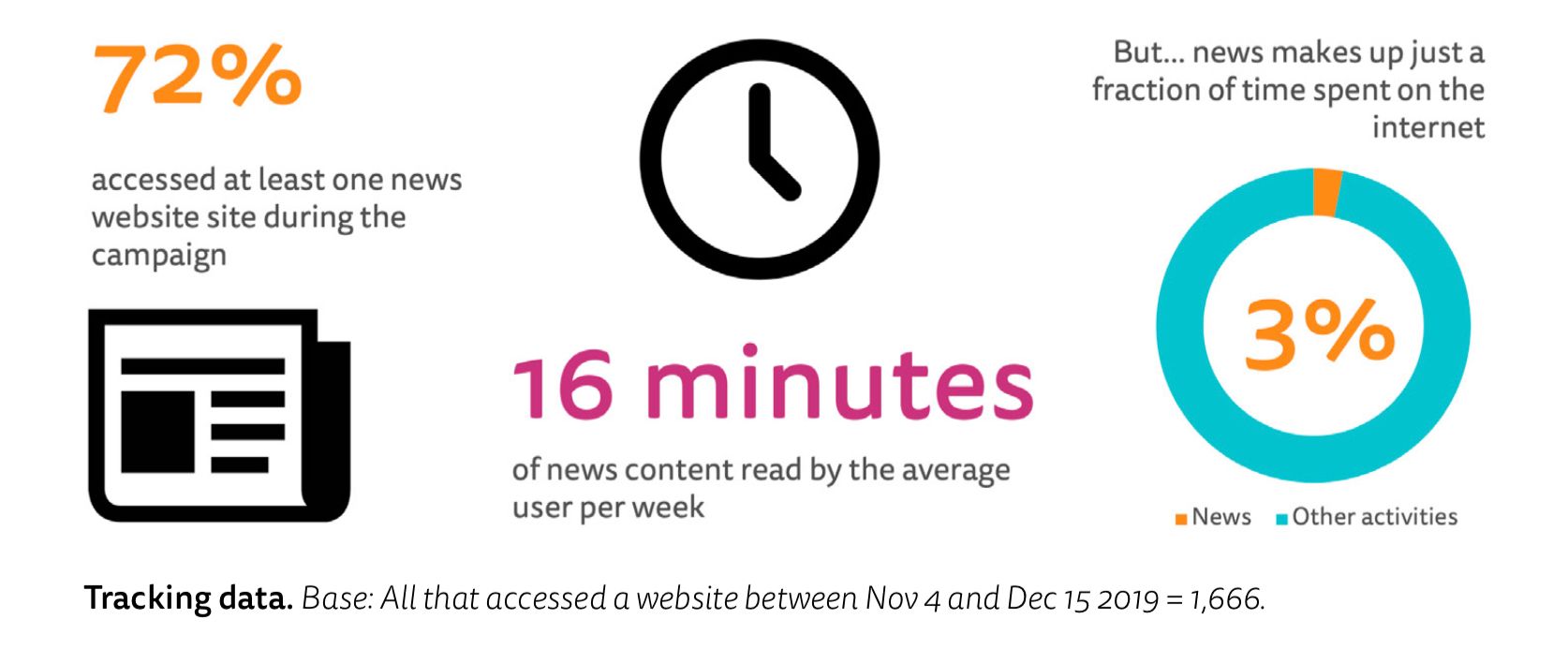
16 minutes of news engagement per week, during an election?
My goodness, we’re spending all this time worrying about misinformation, when we’re failing to engage people with news during this critical time? This, to me at least, a profound failure of the industry. We’re worrying about the details, and the minutiae of algorithms, when we’re failing in the most basic task of a journalist in the digital age: winning people’s attention.
But at least the digital hacks are doing better than the print ones - the dead tree press are officially the least influential form in this election:
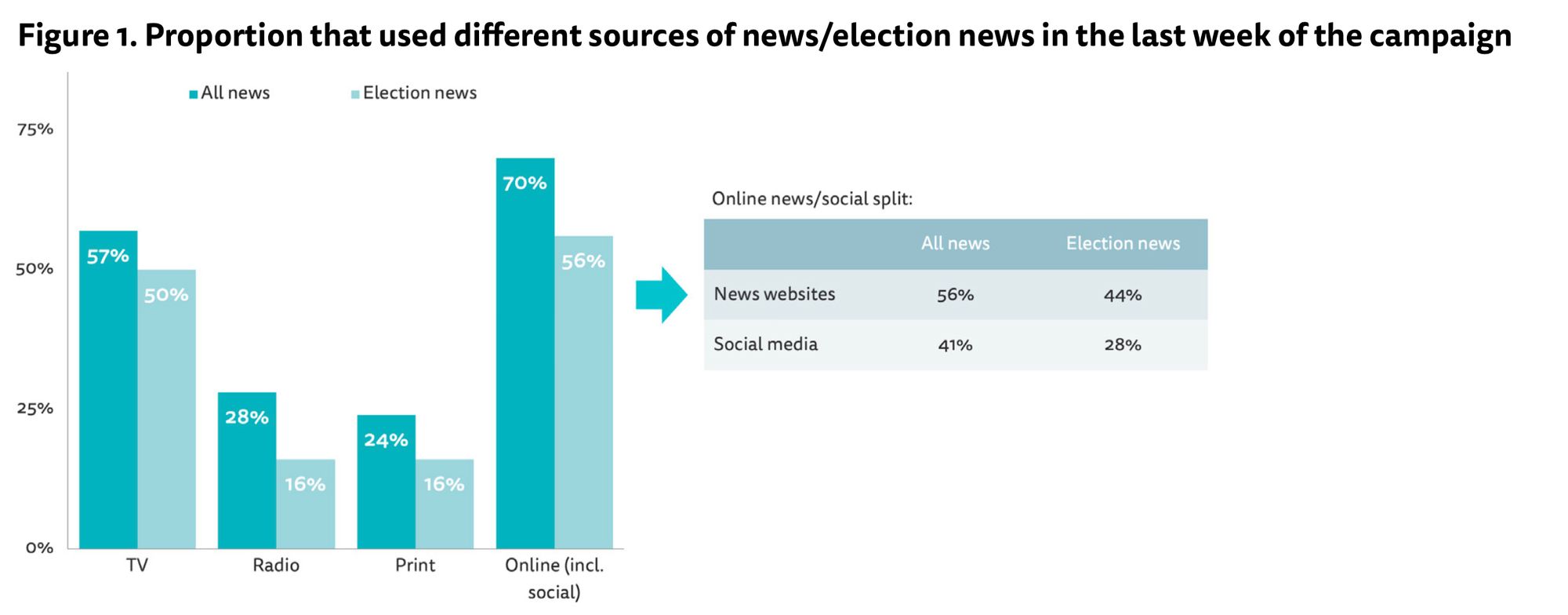
This research should be a brutal wake-up call to the profession to rethink they way it operates before it becomes irrelevant. Our simplest solution to dealing with misinformation might be as simple as finding ways of making our reporting more engaging to the public - because what we’re doing right now clearly isn’t working.
Overall, much elite and public debate around the role of the media in politics before, during, and after the election has focused on the risks of political polarisation (especially around the issue of Brexit, and with two divisive party leaders). Our analysis here suggests that the bigger issue may be that many people do not engage much with news at all, spending just 3% of their time online with news.
We have to find ways of growing that percentage, or the public’s level of awareness of politics is going to continue in it dangerous downwards spiral.
As report co-author Nic Newman puts it:
“Much elite and public debate before, during, and after the election focused on the risks of political polarisation (especially around Brexit) but our analysis suggests that the bigger issue may be that many people do not engage much with news at all. Evidence that younger voters spent just a few minutes a day with online news sites will be of considerable concern for those who worry about political engagement and the health of democracy."
In that, I think he displays a previously-unsuspected gift for understatement.
This is profoundly worrying research.
Sign up for e-mail updates
Join the newsletter to receive the latest posts in your inbox.



